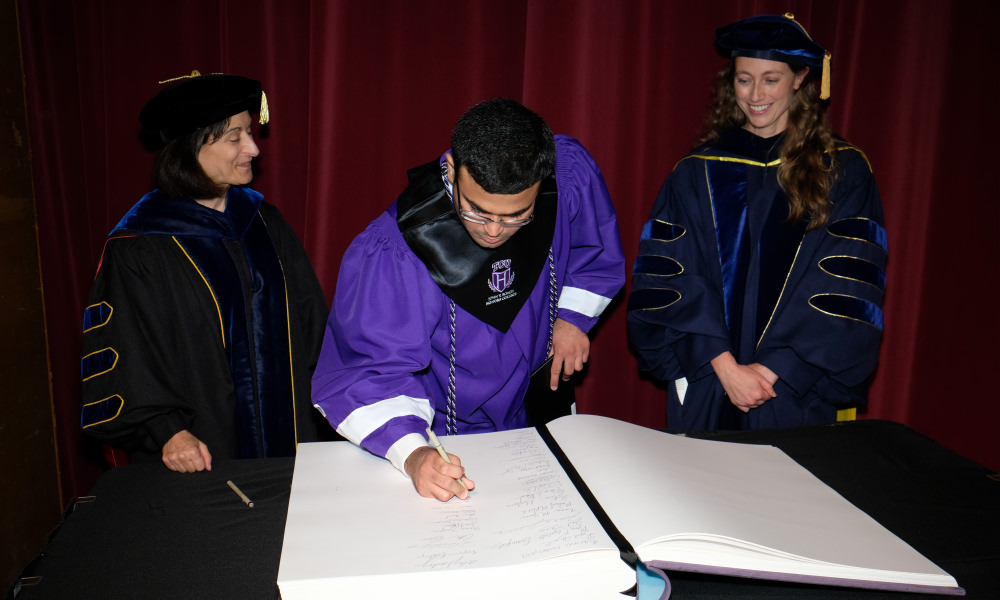
Learn Enthusiastically
Our curriculum challenges you in high-impact, discussion-based seminars to broaden your mind and create connections in and out of the classroom.
Lower-Division Honors
In your first two years, you will focus on fulfilling five Lower-Division requirements with a combination of Honors Electives and Cultural Visions that can help fulfill your TCU Core.
Upper-Division Honors
In your third and fourth year, you can pursue Departmental Honors (undergrad research), University Honors (discussion-based seminars) or both!

Honors Laureate Ceremony

Plan Your Path
Prepare for the Future
Through Departmental Honors, it’s prepared me for the rigors of developing an individual research project. I understand how to design and create a study, run analyses and implement a research project. I truly don’t believe I would have gotten into a Ph.D. program straight out of undergrad without my Honors experiences.
Roxy Odiorne Class of 2023


Scholarship & Financial Aid